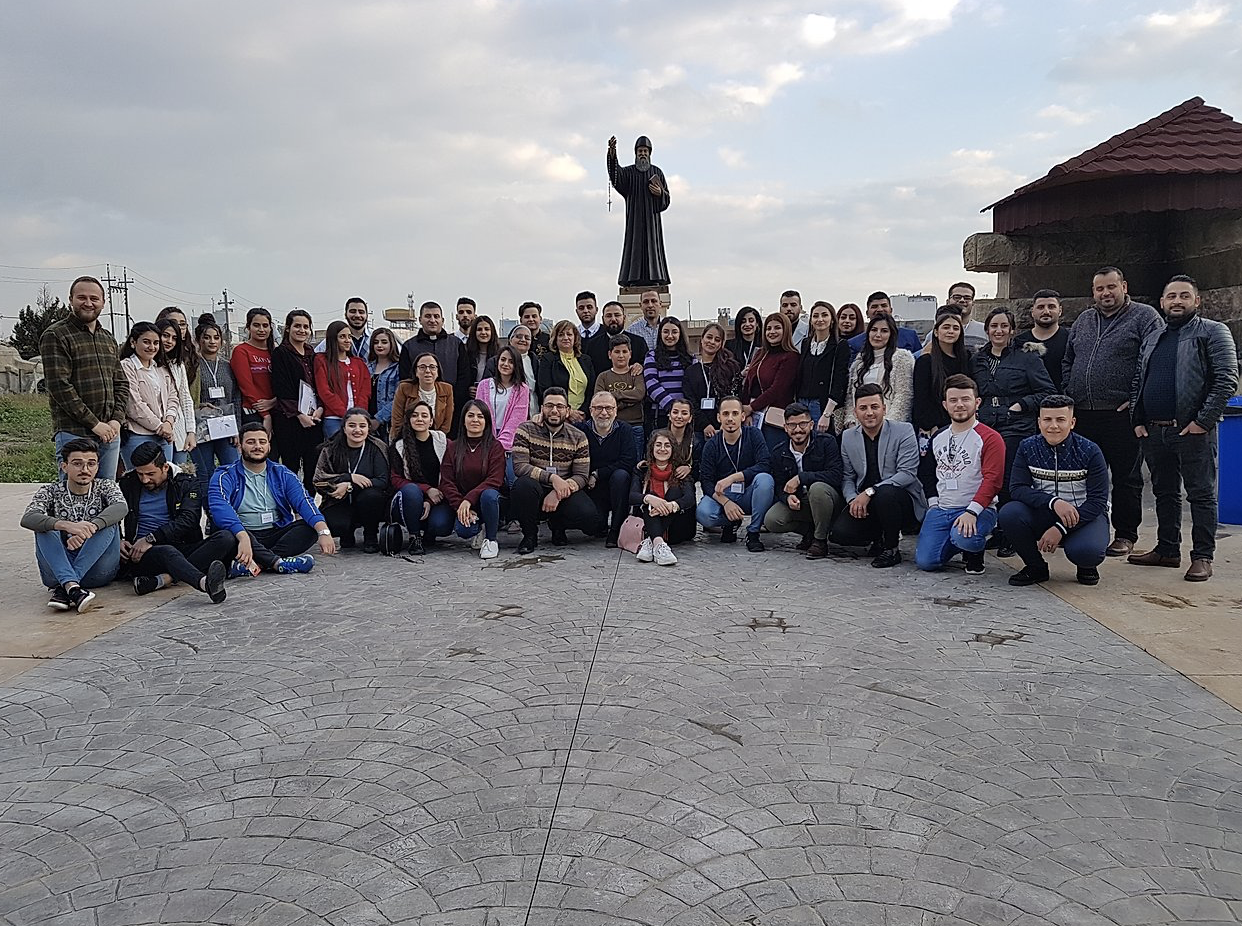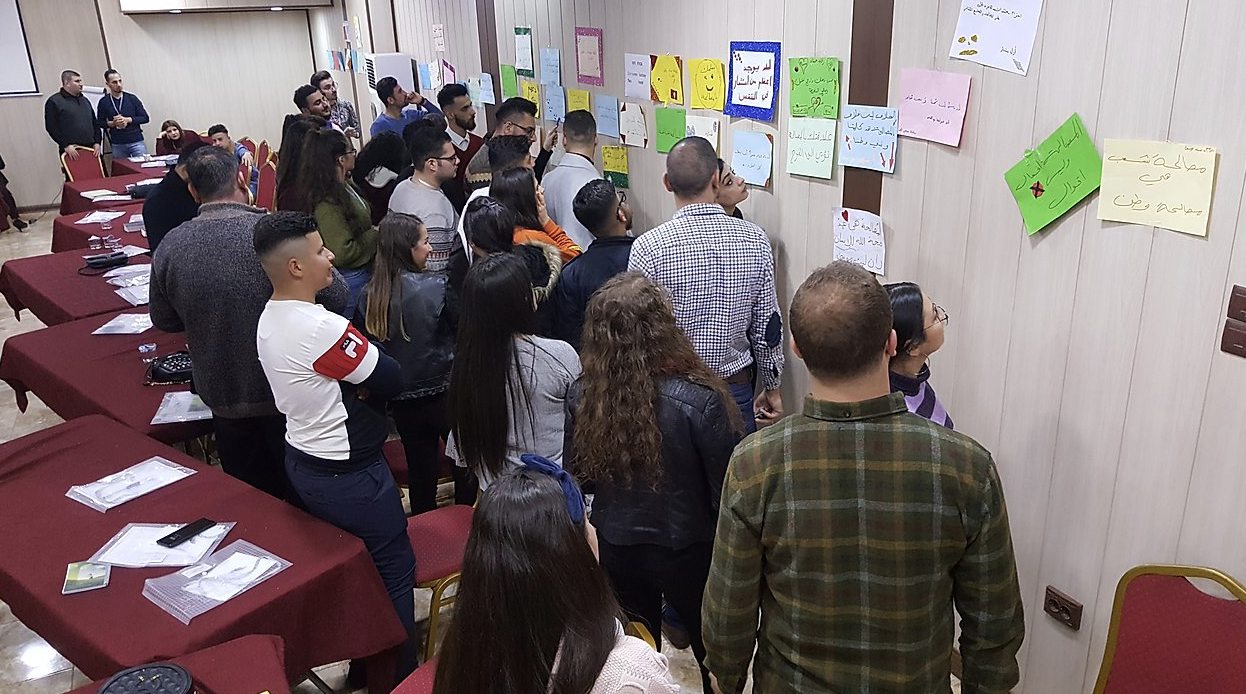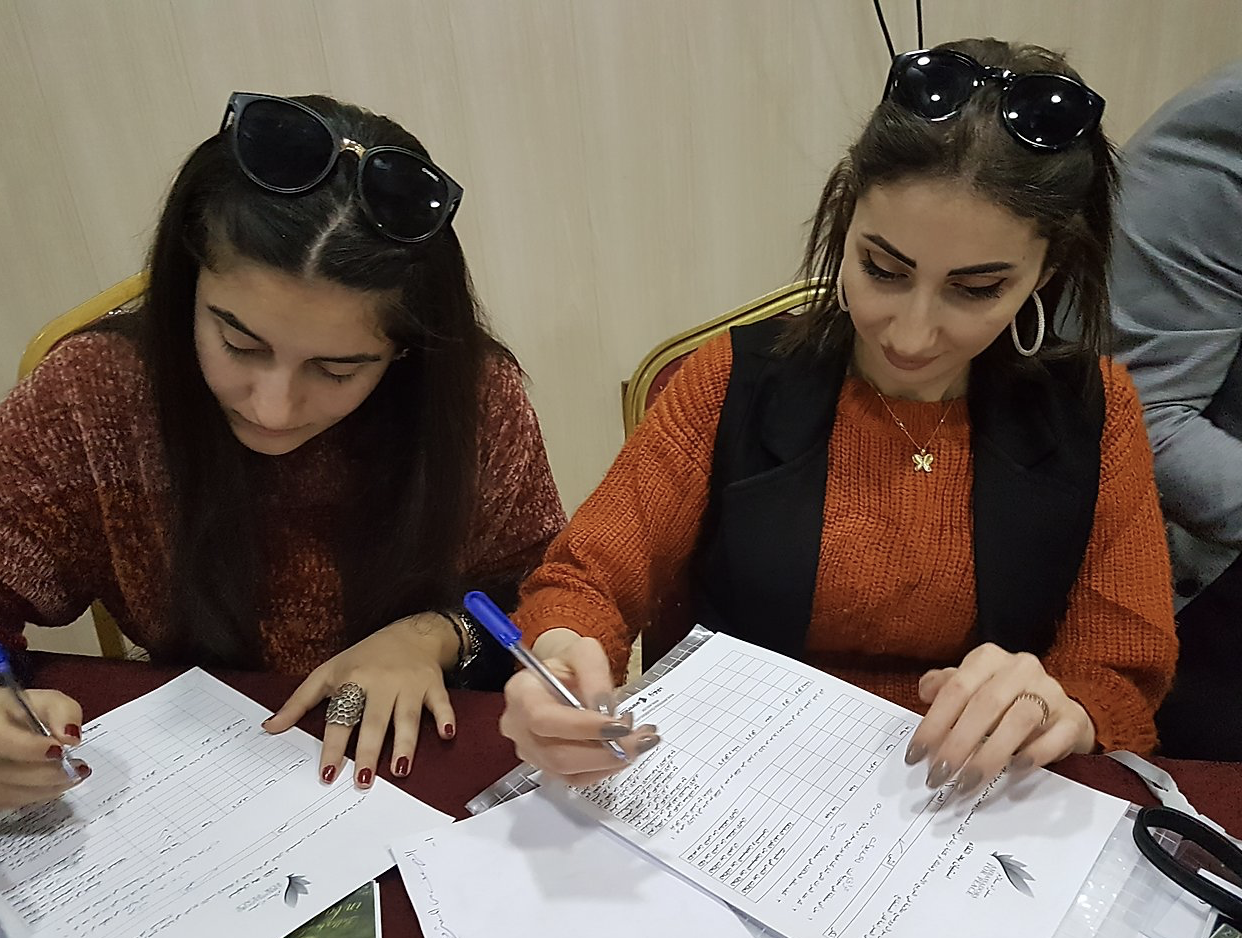
In March 2019, we traveled to Erbil in North-Eastern Iraq to continue the training of our Ambassadors for Peace there. This was our third visit to Erbil – time to begin Project Management training!
In Ambassadors for Peace, the training we offer can be broken down into two distinct parts: preparation and project management. The first part helps the young people to process all that they have experienced and it introduces them to leadership, conflict resolution and advocacy/democracy. Once that part is complete, the Ambassadors are ready to begin learning how to design and manage their own peacebuilding projects.

Our Ambassadors in Iraq had completed the first part, and they were now ready to begin the journey to become Project Managers.
After the Ambassadors program in Syria, Nadim and Huda flew to Erbil to meet the young Ambassadors who had been waiting eighteen months to continue their training due to the unstable situation there. Sadly, some of our young people had left Iraq, but we were delighted to find that 50 men and women had signed up!
We began the event by providing spiritual support for the young people; a time of Bible study, prayer and reflection helped them to gather their thoughts, become more positive, and to center their hearts on the love of God and the liberating work of the Holy Spirit.

After lectures on project presentation and planning, the Ambassadors’ first task was to come up with their own definitions of reconciliation and how to explain it to the community. There was passionate support for the idea that reconciliation needs words – and actions! Perhaps inspired by the earlier period of prayer, the young people also agreed that we should see reconciliation as the embodiment of God’s love for us all.
As one Ambassador said, “The reconciliation of people is the reconciliation of a nation.”

Then they had to decide on who among them would lead each team. A free ‘election’ took place, and the team leaders worked with their teams on how to present their own peacebuilding initiatives using the templates we had given them.
Afterward, the six teams presented their peacebuilding initiatives. The initiatives they had chosen included:
-
Our Children are our Energy for our Future: a project to integrate disabled and able children in society.
-
Rainbow Colours: showing children that we are all equal and to encourage them to be an active part of society.
-
Dinner for our Muslim friends in Ramadan: a program to establish new relationships between the faiths at the university in Erbil.
-
One in Christ: an ecumenical program aimed at young people to bridge the gaps between the denominations.

As in Syria, we were overjoyed to encounter such commitment and creativity in every one of the Ambassadors. They are wonderful role models and we do hope that the training will continue this year if funding can be found.
We should like to thank the clergy who have supported this program in Iraq through their participation, namely Fr Bools Efrem, Fr Stiefanus Al-Kateb, Sister Samira, and Dr. Btris. Thanks also to Mr. Laheeb & Mr. Abou Ban for hosting us at their hotel, the Karlovy Vary Hotel.
We are very grateful to be working in partnership with Tearfund, who have generously support Ambassadors for peace in Syria and Iraq since 2015. We look forward to working with them for many years to come.

